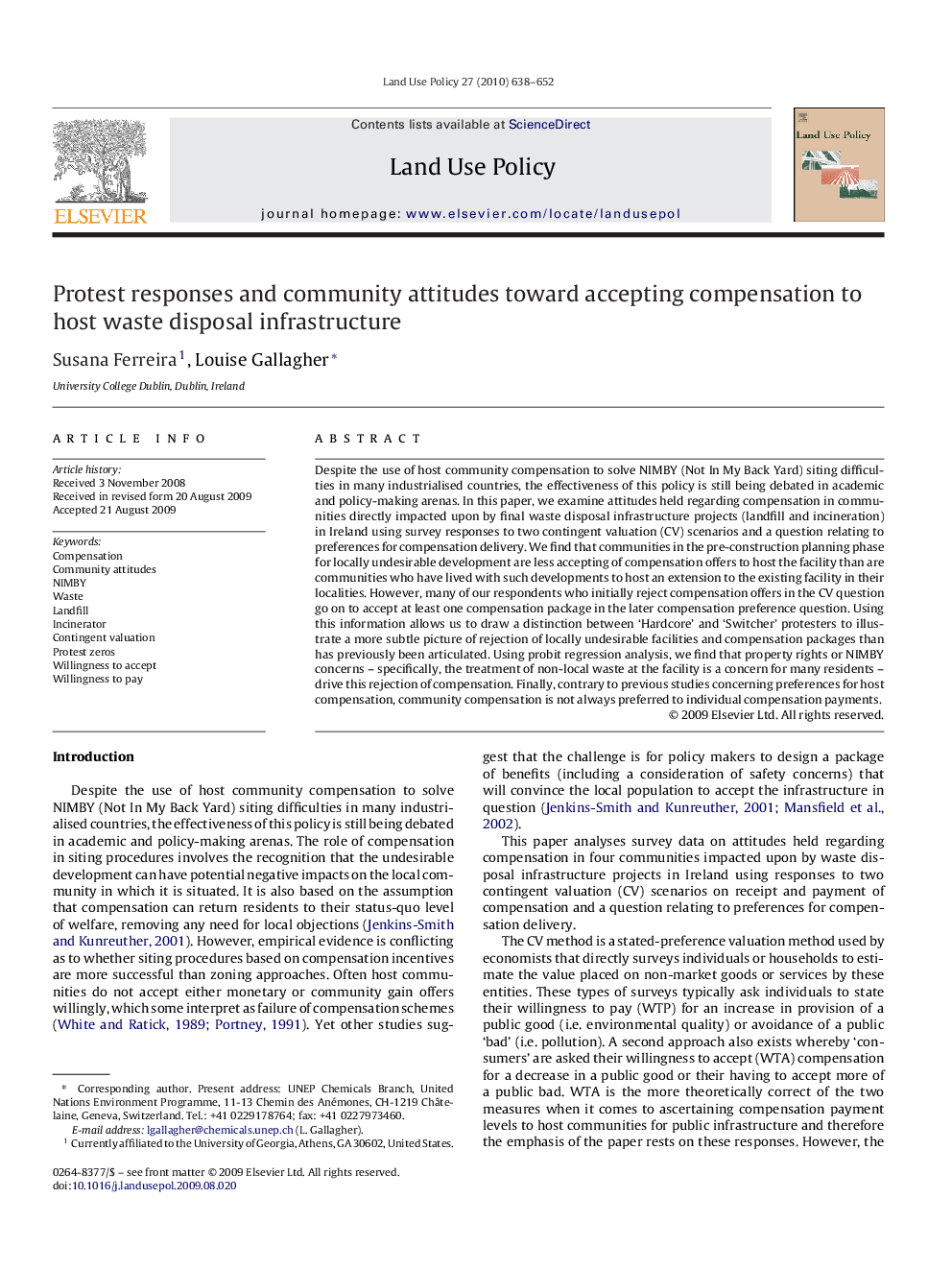| Article ID | Journal | Published Year | Pages | File Type |
|---|---|---|---|---|
| 93557 | Land Use Policy | 2010 | 15 Pages |
Despite the use of host community compensation to solve NIMBY (Not In My Back Yard) siting difficulties in many industrialised countries, the effectiveness of this policy is still being debated in academic and policy-making arenas. In this paper, we examine attitudes held regarding compensation in communities directly impacted upon by final waste disposal infrastructure projects (landfill and incineration) in Ireland using survey responses to two contingent valuation (CV) scenarios and a question relating to preferences for compensation delivery. We find that communities in the pre-construction planning phase for locally undesirable development are less accepting of compensation offers to host the facility than are communities who have lived with such developments to host an extension to the existing facility in their localities. However, many of our respondents who initially reject compensation offers in the CV question go on to accept at least one compensation package in the later compensation preference question. Using this information allows us to draw a distinction between ‘Hardcore’ and ‘Switcher’ protesters to illustrate a more subtle picture of rejection of locally undesirable facilities and compensation packages than has previously been articulated. Using probit regression analysis, we find that property rights or NIMBY concerns – specifically, the treatment of non-local waste at the facility is a concern for many residents – drive this rejection of compensation. Finally, contrary to previous studies concerning preferences for host compensation, community compensation is not always preferred to individual compensation payments.
